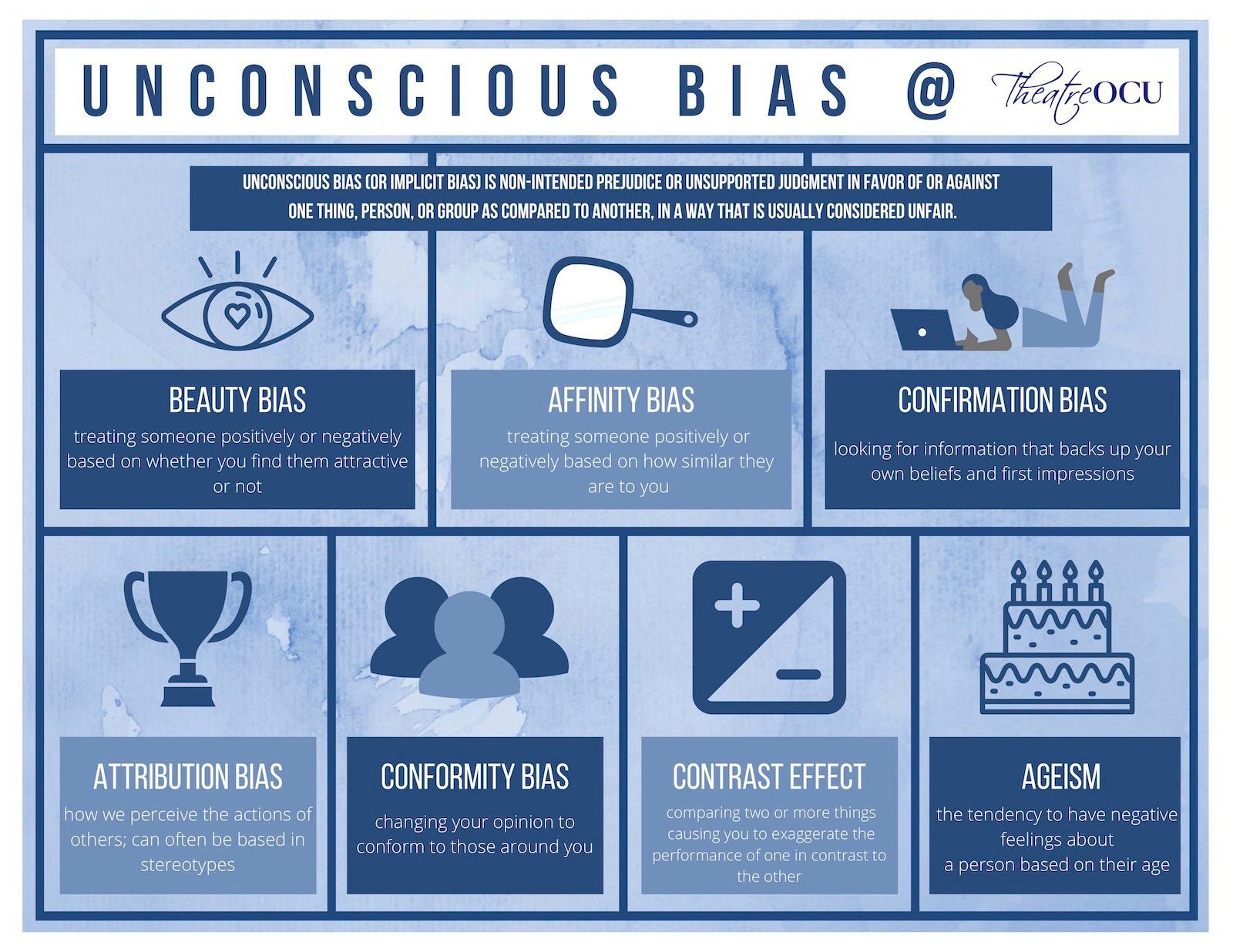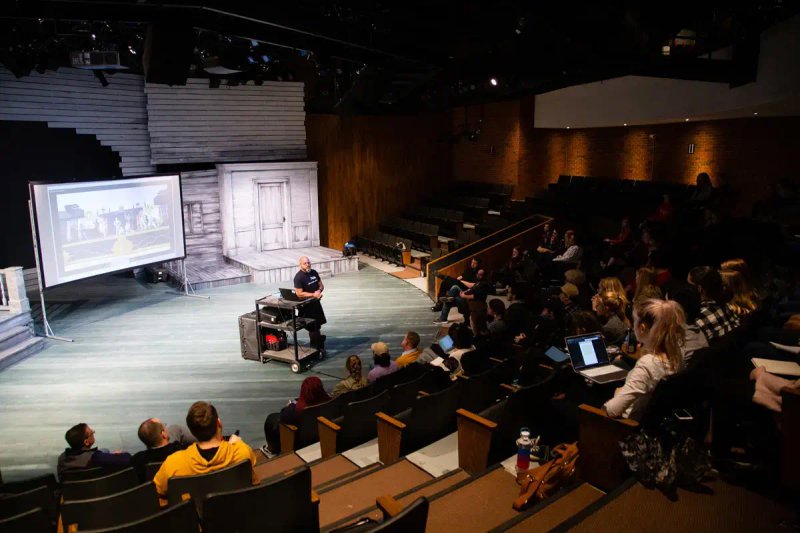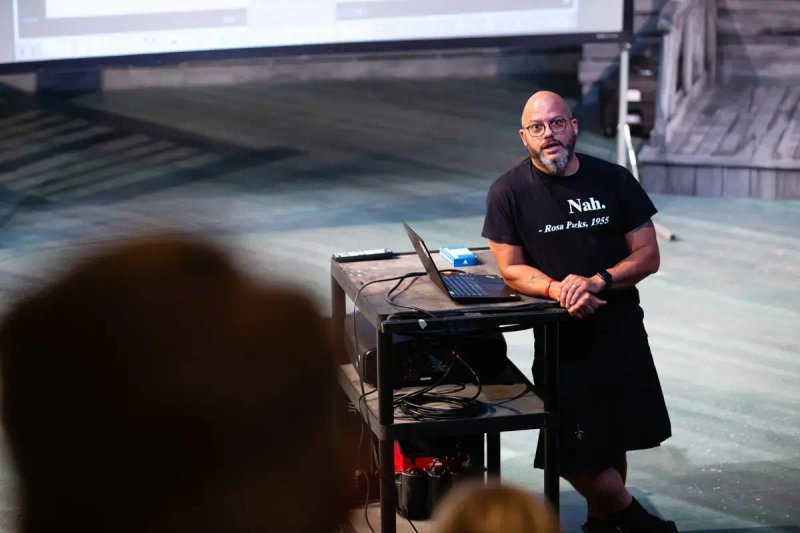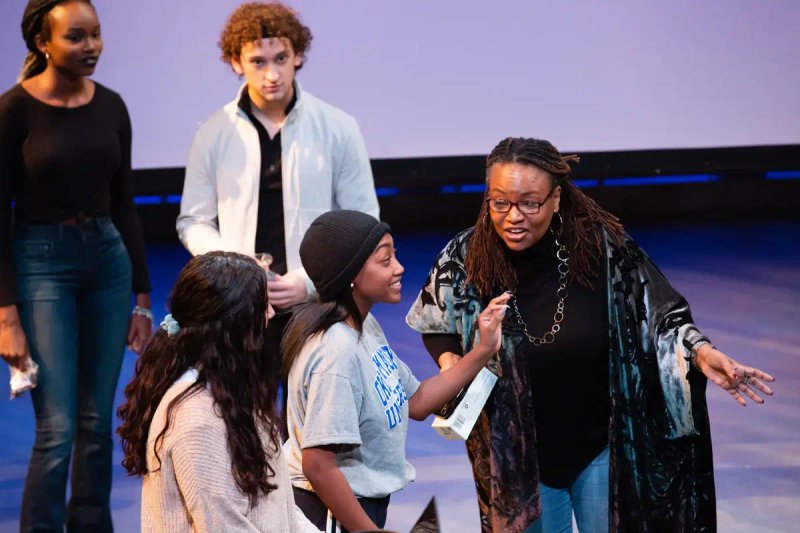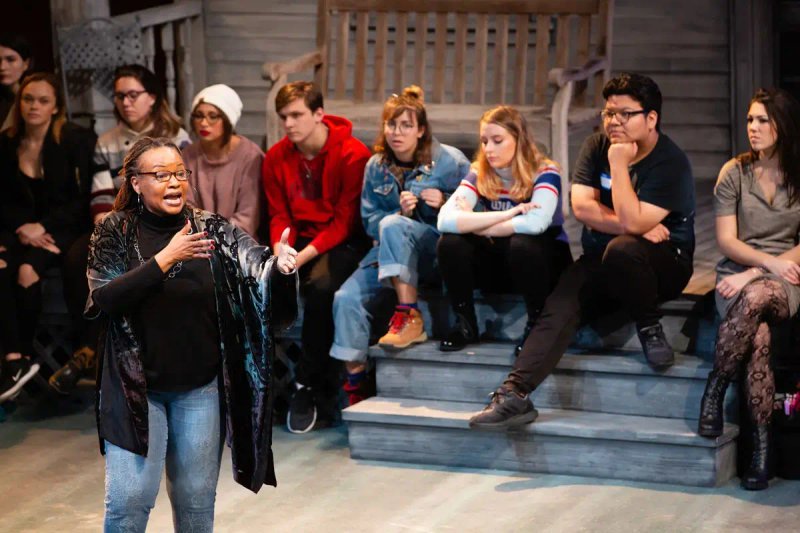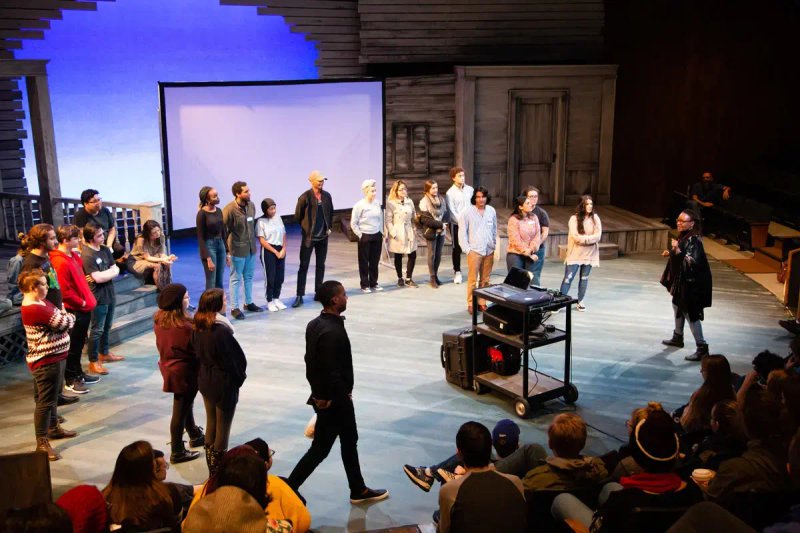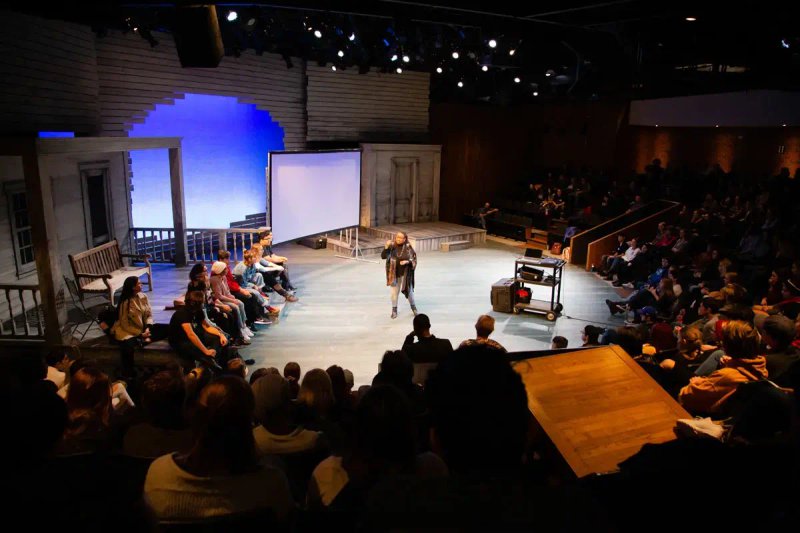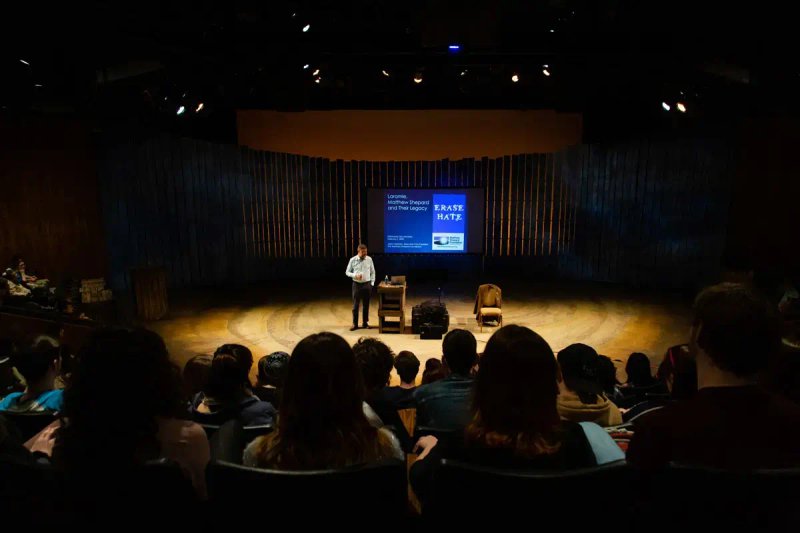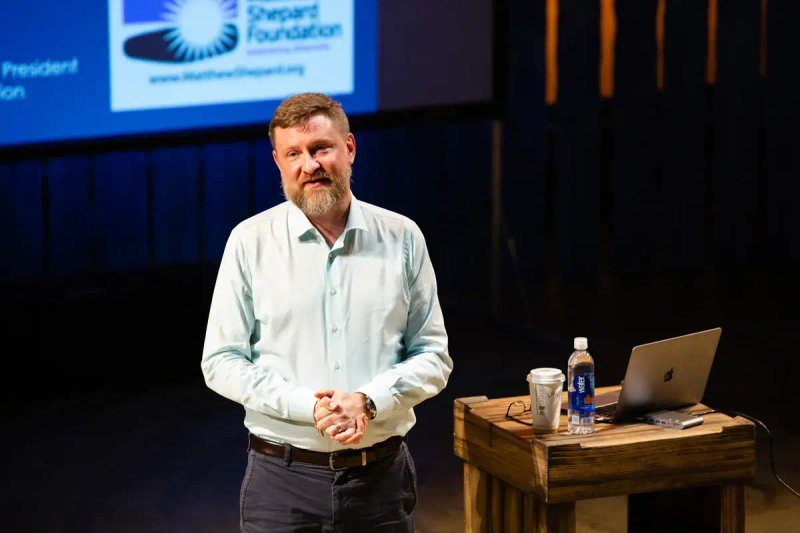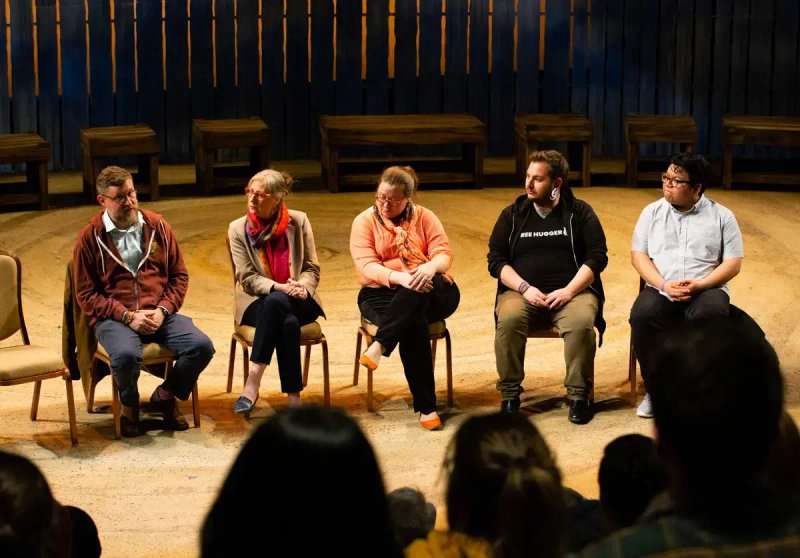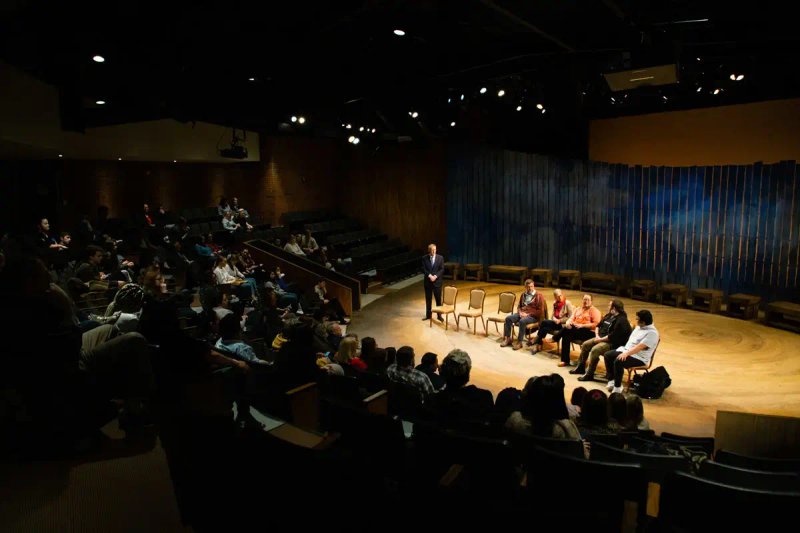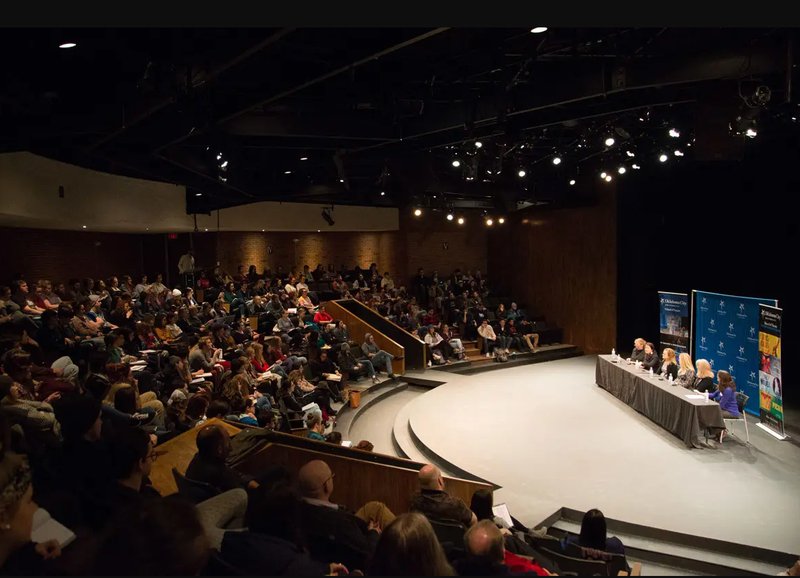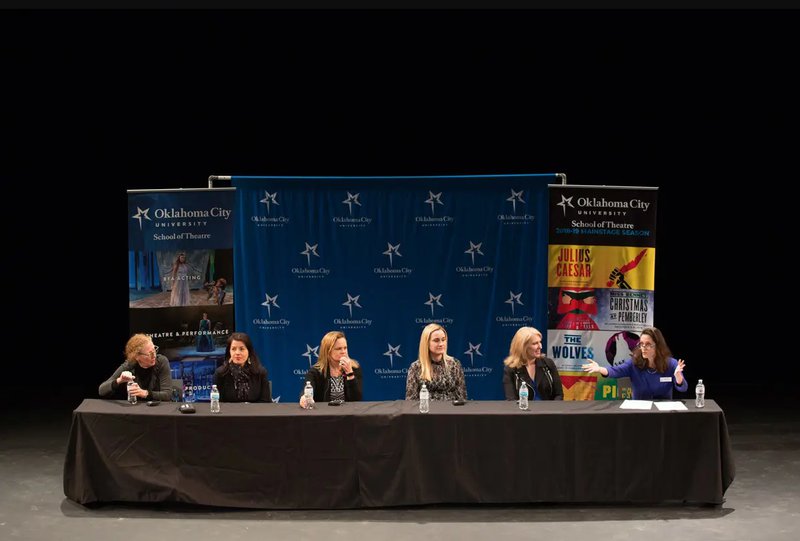Oklahoma City University's School of Theatre is committed to its ongoing efforts to create and maintain a more equitable, diverse, and inclusive culture and environment for our community. We see that community populated by our student artists as well as the staff and faculty who support them.
Under the guidance of Dr. Talia Carroll, University Vice President for Diversity, Equity, and Inclusion, and the School of Theatre’s leadership, we will continue to pursue better practices and implement equitable policies. Our guidelines will strive to decrease unconscious bias and to give all our student artists even more opportunities to create and innovate in a positive and supportive atmosphere.
We seek to be a welcoming place to all students, faculty, and staff while celebrating the multiple identities they hold including race, ethnicity, religion, language, ability, place of origin, gender, sexual orientation, socioeconomic status, and other identities. Here is a selection of some of the initiatives that we have undertaken toward this goal.
“Do the best you can until you know better. Then when you know better, do better.”
– Maya Angelou
In our time together, we are gathered on the unceded land of the Comanche, Wichita, Kiowa, Osage, and Kickapoo peoples. We ask you to join us in acknowledging the Comanche, Wichita, Kiowa, Osage, and Kickapoo communities, their elders past and present, as well as future generations. We acknowledge that our institution of higher learning was founded upon the exclusion and erasure of many indigenous peoples, including those on whose land our institution sits. This acknowledgment demonstrates our commitment to beginning the process of working to dismantle the ongoing legacies of settler colonialism.
Updating Casting Protocols
We updated our casting procedures to allow actors to “opt-out” of any identities described in a production for which they do not feel they are able to perform. The “opt-out” option, we hope, creates a process that that honors inclusive practices.

School of Theatre Convocation: "Theatre as a Catalyst for Conversation, Community, & Action"
On October 22, 2019, we began a series of conversations about Harper Lee’s To Kill a Mockingbird, a new play by Aaron Sorkin. This discussion was led by Kanika Brown (OCU Director of Career Services) and Jeff Cochran (Professor of Stage and Production Management and Director of Global Initiatives).

David “Dstew” Stewart
- David “Dstew” Stewart (Chair for the Equity, Diversity, and Inclusion Committee for USITT and Production Manager at Walt Disney World) engaged in frank conversations and masterclasses with the School of Theatre-at-large concerning EDI efforts. These occasions took place on October 24 and 25, 2019.
- In addition, he met with the School of Theatre faculty on October 25, 2019, to continue this conversation and to apply concepts to that community’s sphere of influence.
Harper Lee's To Kill a Mockingbird Talk Back — David Stewart
David “Dstew” Stewart (Chair of the EDI Committee for USITT) served as the talk-back speaker following TheatreOCU’s October 26, 2019, performance of Harper Lee's To Kill a Mockingbird, connecting the themes of the play to our current environment.
Harper Lee's To Kill a Mockingbird Talk Back — Denise Lee
Denise Lee (creator of the "Change the Perception" Initiative) engaged in a talkback following TheatreOCU’s October 27th, 2019, performance of Harper Lee's To Kill a Mockingbird. The title of the conversation was “Change the Perception / Theatre Artist."
Jason Marsden, Executive Vice President of the Matthew Shepard Foundation
On February 7, 2020, Jason Marsden, Executive Vice President of the Matthew Shepard Foundation, facilitated a dialogue with theatre students about Matthew Shepard’s legacy and the mission of the foundation "to inspire individuals, organizations, and communities to embrace the dignity and equality of all people.”
The Laramie Project Talk Back
Following the February 7, 2020 performance of TheatreOCU’s The Laramie Project, Jason Marsden (Executive VP of the Matthew Shepard Foundation), Sara Cunningham (Founder of Free Mom Hugs), her son Parker Cunningham, Amy B. Middleman (Professor of Pediatrics, CHF Kasterke-Griggs-McLaughlin Chair in Pediatrics Chief, Section of Adolescent Medicine University of Oklahoma Health Sciences Center and Founder of the Roy G. Biv Program at OU Childrens), Shauna Lawless, MD (Director of the Roy G. Biv Program at OU Childrens), and Julian Ibarra (actor from the production and OCU alum) joined the audience to discuss how to empower “the world to celebrate the LGBTQIA+ community.”
Women in Theatre Panel
On February 15, 2019, a panel of women professionals discussed the challenges of women in leadership in the arts. The panel was made up of Teresa Eyring (Executive Director for the Theatre Communications Group), Elizabeth Gray (Executive Director of the Civic Center Foundation), Ashley Wells (Executive Producer of Lyric Theatre of Oklahoma), Jo Lynne Jones (Executive Director of Oklahoma City Ballet), Lyn Adams (Executive Director of Oklahoma Children’s Theatre), and Amber Sharples (Executive Director of the Oklahoma Arts Council).
Creation of student-populated “School of Theatre Diversity, Equity, and Inclusion Council”
On August 19th, 2019, School of Theatre student Taha Khan met with the Interim Associate Dean Mark Belcik about his proposed creation of the student-populated “School of Theatre Diversity, Equity, and Inclusion Council.”
The School of Theatre Diversity, Equity, and Inclusion Council strives to collaborate with our faculty in order to fight for marginalized communities within our theatre program.
Directors Workshop in Unconscious Bias Training with Dr. Talia Carroll (Vice President for Diversity, Equity, and Inclusion for Oklahoma City University)
Within the Schools of Theatre and Music, the productions' directors prepare for auditions by participating in Unconscious Bias Training with Dr. Talia Carroll (VP for Diversity, Equity, and Inclusion) each semester prior to the audition process.
Theatre History I, II, and III descriptions are more inclusive. Traditionally theatre has relied on a European and American-centered focus, therefore missing an opportunity to broaden understanding and perspective about a range of influences on theatre as a whole. Specifically, our goal with updating course descriptions is to be more inclusive and responsive to the ever-changing demographics in our country and to honor the excellent work across a number of cultural experiences. Script Analysis has also moved away from this traditional focus. These changes were adopted and implemented in time for the Fall 2021 semester.
On February 9, 2021, the faculty of the School of Theatre participated in a workshop on Mitigating Bias with Dr. Talia Carroll (VP for Diversity, Equity, and Inclusion). Many common forms of bias that occur in higher education were introduced. Then strategies to alleviate them were discussed. Dr. Carroll had met with students on February 2, 2021, to explore the same topic.
The School of Theatre has displayed an Unconscious Bias poster in their spaces with the hope they help keep common forms of bias from frequently sneaking into the classrooms.
